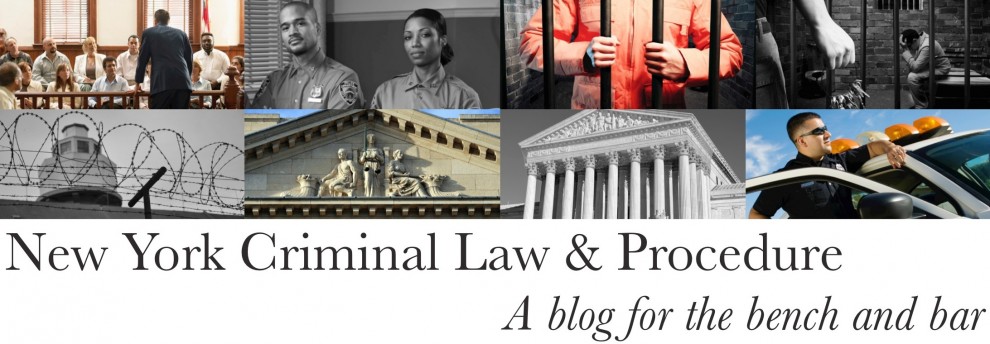In New York, unlike other states and the federal system, trial judges and defendants may bypass the People and enter into plea negotiations directly. This is not uncommon. However, in People v. Towns (Ct. App. 5/7/2019), the Court of Appeals held that the trial court “abandoned the role of a neutral arbiter and assumed the function of an interested party” when it entered into a cooperation agreement with a co-defendant, which required that individual to testify against Towns in exchange for a more favorable sentence. The Court’s decision was unanimous, although Judge Rivera would have gone a step further and held that the trial judge showed actual bias.
The case was a simple, straightforward robbery, in which the issue was the identity of the perpetrators. The co-defendant implicated the defendant. His plea agreement with the judge called for a possible punishment of between 9 and 15 years; the judge, however, promised a sentence on the low end of the range if the co-defendant cooperated in the defendant’s case. At the defendant’s trial, the prosecution elicited that the co-defendant had not entered into a cooperation agreement with the district attorney’s office. The judge instructed the jury that the agreement was between the co-defendant and the court.
The Appellate Division criticized the trial court but upheld the conviction, finding that the court’s conduct did not deprive the defendant of a fair trial.
The Court of Appeals disagreed, analogizing to cases where judges made caustic remarks, called its own witnesses at trial, aggressively cross-examined witnesses, or acted as an appellate court in its own case. The focus, for the Court of Appeals, was the lack of neutrality that the judge showed. The Court was particularly troubled by the trial court’s statements tying its understanding of truthful testimony with the co-defendant’s prior statement:
Indeed, whatever its subjective intentions, the trial court effectively procured a witness in support of the prosecution by inducing the codefendant to testify concerning statements the codefendant made to police—which identified defendant as one of the robbers—in exchange for the promise of a more lenient sentence. Significantly, by tying its assessment of the truthfulness of the codefendant’s testimony to that individual’s prior statements to police, the trial court essentially directed the codefendant on how the codefendant must testify in order to receive the benefit of the bargain.
The case was remitted for trial before a different judge. (LC)


